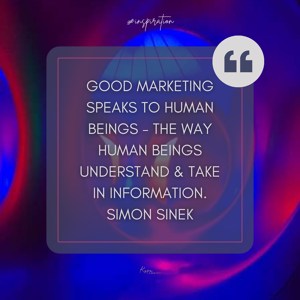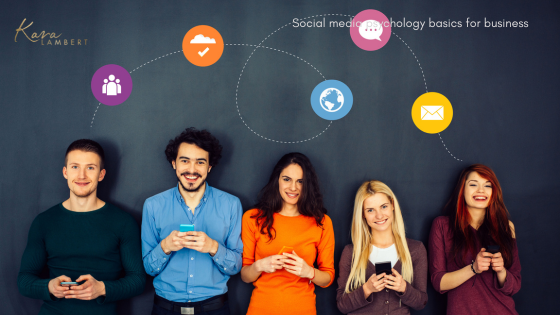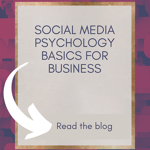Social media is one of the most common marketing channels businesses use to reach their target market. On the other side of a device, reading/watching your social media activities is a person. You are educating, entertaining, & enticing a person. If you want your efforts to be effective then you are best served by understanding their psychology & the psychology of social media. Why? Because at the end of the day, in the main, it is our psychology/emotions/motives drive actions.
Social media psychology & platforms
According to Statista, Facebook has the most active users worldwide with 3.03B. This is followed by YouTube (2.49B), Instagram, & WhatsApp (the last 2 tied on 2B). Meta (owners of Facebook, Insta, & WhatsApp) & YouTube all make money from advertising, this relies on clients getting onto and staying on their platform.
(2.49B), Instagram, & WhatsApp (the last 2 tied on 2B). Meta (owners of Facebook, Insta, & WhatsApp) & YouTube all make money from advertising, this relies on clients getting onto and staying on their platform.
Back in 2012, I had an inkling that Facebook had employed psychologists. In 2014, their research into the impact of emotions on posting proved that I was right. While Facebook admits to using psychologists, there is no record of any other platforms employing psychologists. It’s pretty hard to believe that none of them use the services of psychologists when you consider the methods used to keep people on and engaged on the platforms.
Social media psychology & brains
So, what is happening inside our brains when we are on social media? Well, there are 3 main chemicals (neurotransmitters) released: dopamine, oxytocin, & cortisol.
Dopamine is the chemical that our brain puts out when we want or need something & is key in addiction. In social media it’s triggered in anticipation of a response, a ‘like, comment’ or other response.
Oxytocin is the love drug. It’s one of the chemicals used to bond mother and baby after birth. What they found was that when people respond to our posts and comments we get a rush of Oxytocin.
Cortisol is a stress hormone, the thing that makes us want to fight, flight, freeze, or fawn. The chemical that kicks in when someone makes us angry, when we start shaking at the thought of replying to a keyboard warrior, or for some just posting on their social media profile. You don’t want your clients to receive a cortisol rush from your content.
Your fans will receive a rush of dopamine when they comment, like or otherwise respond to your posts online. Then they wait. And the longer they wait, the lower the dopamine level gets. Dopamine drops off quickly in humans. When we have a spike of dopamine, our heart rate increases, we feel happy, we feel good about ourselves. It’s no wonder it’s involved in addiction!
So that’s how we feel connected to each other. I don’t know about you, but I want my clients to feel a connection to me. I want them to like, know, & trust me. Oxytocin is the pair bonding hormone. This hormone will help you develop a strong and lasting relationship with your followers.
Practical use of social media psychology
 By now I hope you can see that keeping your audience engaged, and on a platform, longer is a result of how well your content produces dopamine & oxytocin. Platforms reward these accounts by preferencing their content. To achieve this, you need to understand the psychology of your clients. This is where your avatar comes in. Except it needs to include their psychographics of what motivates them and not just demographics (age, gender, marital status, education, location etc).
By now I hope you can see that keeping your audience engaged, and on a platform, longer is a result of how well your content produces dopamine & oxytocin. Platforms reward these accounts by preferencing their content. To achieve this, you need to understand the psychology of your clients. This is where your avatar comes in. Except it needs to include their psychographics of what motivates them and not just demographics (age, gender, marital status, education, location etc).
There are many other ways businesses can use psychology in their marketing, not just on social media. At the core of it is applying the principle that we buy from businesses we know like and trust and that people are key to the success of your business. This means that you and your business will benefit from understanding people & their psychology, ie. what makes them tick & click online.


